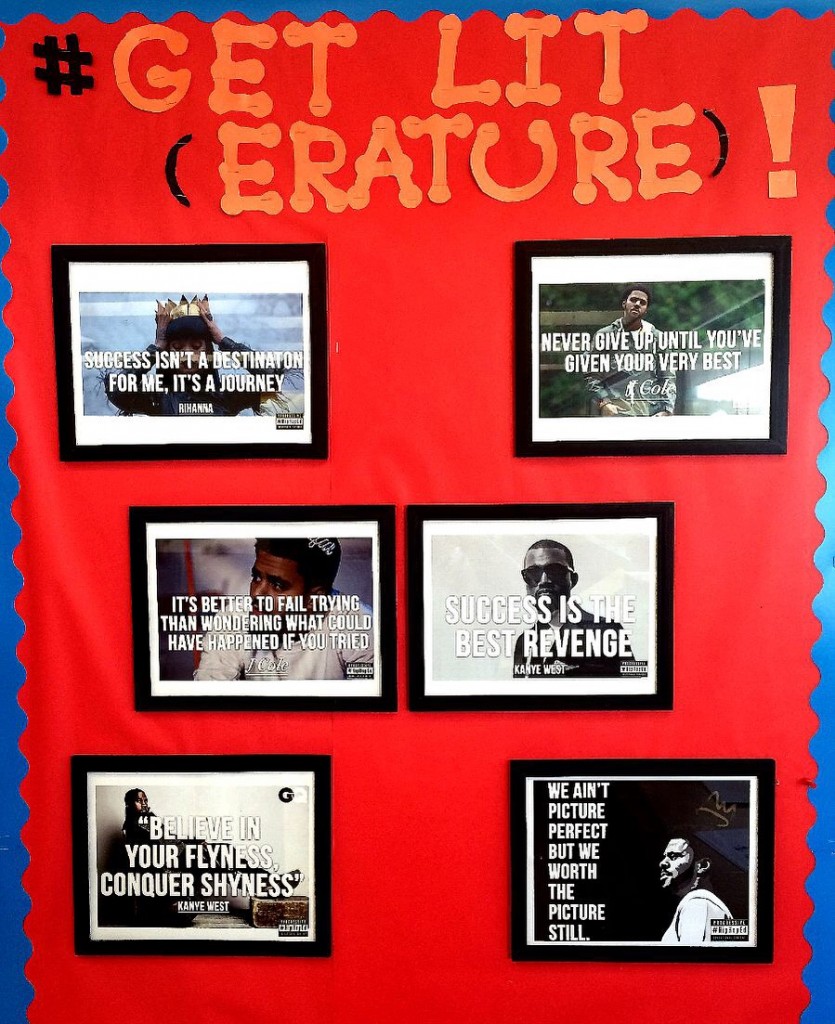This past weekend I watched the documentary “Hip-Hop Evolution”. Like many hip-hop docs, the story chronicles the life of hip-hop from an underground niche art form to the global tastemaker that it is today. And like many hip-hop docs, I was fascinated by it. Honestly, I will probably continue to watch renditions of the historical content behind the roots and evolution of “our culture” as long as creative filmmakers continue to put them out. I picture a day when I am well into my 60s forcing my grandchildren to sit with me and watch narrators explain who Grandmaster Flash and DJ Kool Herc were and telling them stories that all start with, “Back in my day…” I grew up with the cultural boom that was 90s hip-hop so the history behind it will always carry sentimental value to me.
But in the past five years or so we’ve witnessed hip-hop transform from “our” culture to one that maintains universal appeal through transcending into all areas of our lives. Hip-hop has gone from a fringe product to one that carries validity and power inside some of our most important institutions. Perhaps most important of them all is how hip-hop has infiltrated (and I use that word in its most positive of meanings) education.
We began by using hip-hop as a method to reach students in English classes. Interjecting raps for poems and curating content on syllabi, like “Brenda’s Got a Baby” or “The Message,” that allowed students to interrogate social ills and issues in ways that novels like A Streetcar Named Desire or To Kill a Mockingbird do. Our music held currency that we cashed in on in order to make math class more interesting and we have begun to channel the science behind hip-hop into the actual sciences we teach in schools. This is where we are with education and hip-hop (oh shit, I think I just thought of a new documentary!). Education has hesitantly embraced hip-hop culture (on some levels) and subsequently whispered to young black and brown boys and girls that they matter. But using the art form in a singular manner has some built-in shortcomings. If we only use the music, we do intrinsically validate the culture, but we also impede its overall impact by subconsciously suggesting that the music, the artistic and creative side of hip-hop, is the only part of the culture of substance. The vehicle of hip-hop can carry much more.
In a weekly twitter chat, #HipHopEd, reality pedagogy creator and HipHopEd founder Chris Emdin asked, “How else might hip-hop forms of expression (other than rapping) be utilized in the classroom?” The question was brilliant. It suggests that “the message” of hip-hop is fluid enough to exist in multiple realities. We have figured out how to mesh hip-hop with curriculum and even how to infuse it in teaching delivery. It’s time to examine how our actual classroom spaces can represent the most influential culture of the last forty years.
Many have begun this work. Arts education programs are exploring how to incorporate graffiti culture into their programs. We are continually changing our aesthetic views on fine art by dichotomizing how important American artists like Jackson Pollack compare to Basquiat (and not the other way around). Our next step is to revolutionize the space of the classroom.
Accomplishing this feat is relatively simple. By making our classrooms culturally relevant, we continue to extend and expand our invitation of hip-hop culture into conservative educational culture. Like I said earlier on, I am and will always be a fan of the history behind hip-hop. But I am not naïve enough to think that students born post-millennium will carry this same sentiment. To be quite honest, the 12 and 13 year-old kids I teach barely mess with J.Cole or Kendrick Lamar! Hip-hop education does not need to only look like documentaries about the history of the music. It can also look like classrooms that represent the street corners, language, bedrooms, and iPhones of our new, young hip-hop fans. Opening up our classroom; its arrangements and its walls to reflect modern hip-hop culture is one way that hip-hop forms of expression can be utilized in the classroom. We can extend the mix between hip-hop and education beyond lyrics. This may look different to different educators. That is fine. But it is better than having students explain the importance of a 16-bar verse while staring at a bunch of dead white guys on the wall.
[share title=”Share this Post” facebook=”true” twitter=”true” google_plus=”true”]

